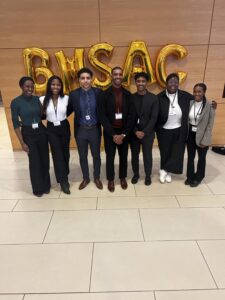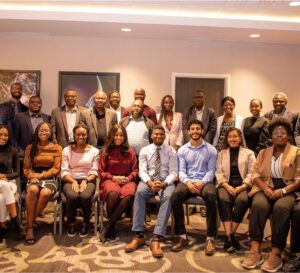The national Summer Institute on Sustainable Health Systems was created to fill a gap in healthcare professional training and provide health research and health professional trainees with the opportunity to increase awareness of sustainable health systems and current action in Canada. It is coordinated by CASCADES Canada with federal funding.
Through guided learning activities, meetings with local sustainability leaders and nation-wide panel discussions, the Summer Institute aims to develop trainee knowledge, leadership skills and capabilities, and build professional, interdisciplinary networks of trainees and professionals with shared interests. Daily themes are outlined below.
| Daily theme |
National Panelists |
Local Leaders |
| Climate Change, Health and Health Equity |
Dr. Rick Glazier, Dr Sherilee Harper, Dr. Fiona Miller, Dr Danielle Toccalino |
Dr. Daniel Fuller, Dr. Lori Bradford, Dr. Wanda Martin |
| Mitigating the Climate Harms of Health Care |
Dr. Andrea MacNeill, Gillian Ritcey, Dr. Sonja Wicklum |
Lindsey Vold, Caitlin Roy, Jared Saunders, Dr. Henricke Rees |
| Health System Adaptation and Resilience |
Craig Brown, Dr. Celia Culley, Dakota Recollet |
Dr. Ulrich Teucher, Ramneet Jassal, Dr. Jasmine Hasselback, Brooklyn Rawlyk |
| Leadership and Making Change |
Dr. Alika Lafontaine, Caroline Tateishi, Dr. Edward Xie |
The learner group attended a facilitated bison walk at Wanuskewin focused on bison as a keystone species that promotes revitalization of prairie ecosystems. |
USask took the opportunity to host a local hub in June 2023 and spent four days engaging with a group of 7 learners from various disciplines. Our learners represented a pharmacy graduate student, a resident in Obstetrics and Gynaecology, a resident in Family Medicine, and four graduate students from Community Health and Epidemiology.
Feedback from the participants and facilitators was overall extremely positive:
“…local people who have been working towards making their workplaces more sustainable and observing how we all encounter so many difficulties. It gave me the nice sense of “we are so many, lots of people who want to do things”, but also showed the shocking reality of “the system is not really helping”
“It was really eye opening to hear so many different perspectives within the group. I also really enjoyed the speakers and their informative talks. I thought the progression throughout the week was very well planned and allowed us to build upon concepts we had learned the day before.”
“It was encouraging to see that there are students and colleagues on the local level as well as on the national level who recognize that there is need and possibilities for action. We are not alone”
“I learned that there are steps that the healthcare industry can take to reduce climate change. I want to contribute to this mission one day.”
Here’s a summmary of our last day from Zoe Schipper, a graduate student in Community Health & Epidemiology:
At the Saskatoon hub, we wanted to embed ourselves in the learning. Discussing temperature rise, environmental equity, and system change during the conference activities and presentations was meaningful inside a classroom but could only become heightened through the last day ‘making a change’ going out to see it. Our group visited Wanuskewin, a heritage park in just north of Saskatoon, Saskatchewan. Wanuskewin is unique in that it holds independent conservation status, above and beyond its provincial, and federal designations. Aiming to be a UNESCO heritage site in 2026, Wanuskewin educates on 6,500 years of Indigenous environmental practises and returning to land-based learning integration. By reintroducing 6 bison to the land in 2019, the heard has grown to 35+ with 4 new calfs born in June 2023. Learning through movement and enngaging in a space of nature brought about discussion of how to implement changes in our green spaces and how to best benefit from ecosystem services. We discussed the resilience of the grasslands to adaptation in times of drought and in collaboration with keystone species. We had the fortune of knowledge keeper guides to inform us about the species diversity in this landscape and how the reintroduction of the bison, renaturalizes the landscape with every year. Located in a deep valley by glacial erosions millions of years ago, this spot was essential to the Indigenous practice of the Fall bison jump to ensure food and materials for clothing, tipis and other essentials through the winter. Through this we discussed that each person has a role to play in the future of our environment, just as each member of the tribe had a role to play in ensuring a successful bison jump. Getting to bring our group there was a calling back to the roots of the Treaty 6 land which we get to enjoy to live, learn and collaborate. We hope to attend a nature park visit in the future and encourage other hubs to find nature-based programming opportunities to engage in kinesthetic and body-balanced learning.
The planning committee consisted of representatives from Undergraduate and Graduate Medical Education, Saskatchewan Health Authority, Community Health and Epidemiology, Division of Social Accountability (DSA), Office of the Vice-Dean Indigenous Health and Wellness, and students. We are grateful to all members of the planning committee, to DSA for support with coordination, and to local sustainability leaders who presented to share their work. *
USask has been invited to host a local hub for the 2024 Institute. The recommendation of the planning committee is to accept the invitation and partner with other Health Sciences in hosting, to expand the pool of potential learners, speakers, and organizational support.




